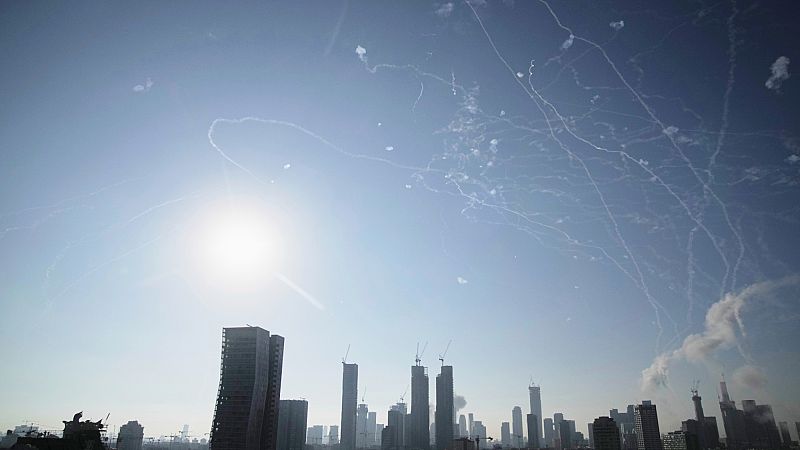
Iranian missiles again evaded Israel's sophisticated aerial defence array on Thursday, striking a main hospital in the south as well as residential areas in the country's populous center.
Israeli authorities say at least 24 people have been killed by Iranian strikes since the fighting began on June 13, which has reduced homes, buildings and other property in multiple areas of the country to ruins.
Israel has developed, with assistance from the United States, a tiered system capable of detecting incoming fire and deploying only if the projectile is headed toward a population centre or sensitive military or civilian infrastructure.
The array can shoot down short-range rockets to medium-range missiles to attack drones to ballistic missiles like those Iran has been firing.
The Israeli military warns that the system is not foolproof and while interception rates are generally high, enemy missiles can penetrate.
Too many projectiles launched at once can overwhelm the system, which relies on a combination of technology and human decision-making to be effective.
The Arrow
This system, developed with the US, is designed to intercept long-range missiles, including the types of ballistic missiles Iran launched on Tuesday.
The Arrow, which operates outside the atmosphere, has also been used in the current war to intercept long-range missiles launched by Houthi militants in Yemen.
David’s Sling
Also developed with the US, David’s Sling is meant to intercept medium-range missiles, such as those possessed by Hezbollah in Lebanon.
It has been deployed on multiple occasions throughout the war.
Iron Dome
This system, developed by Israel with US backing, specialises in shooting down short-range rockets.
It has intercepted thousands of rockets since it was activated early last decade, including thousands of interceptions during the current war against Hamas and Hezbollah. Israel says it has a success rate of over 90 per cent.
Iron Beam
Israel is developing a new system to intercept incoming threats with laser technology. Israel has said this system will be a game changer because it would be much cheaper to operate than existing systems.
According to Israeli media reports, the cost of a single Iron Dome interception is about $50,000 (€43,000), while the other systems can run more than $2 million per missile. Iron Beam interceptions, by contrast, would cost a few dollars apiece, according to Israeli officials.
The army says the technology has been tested during the past 20 months of conflict, but the system is not yet operational.






